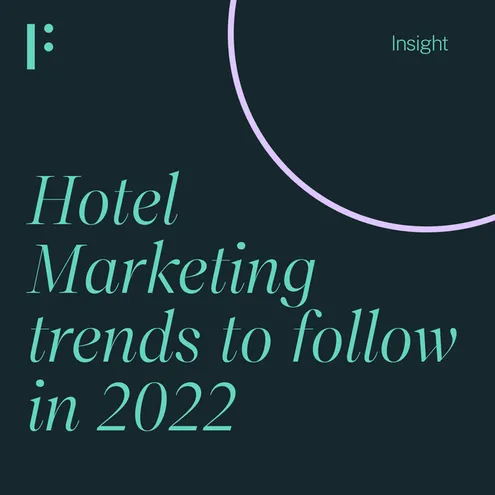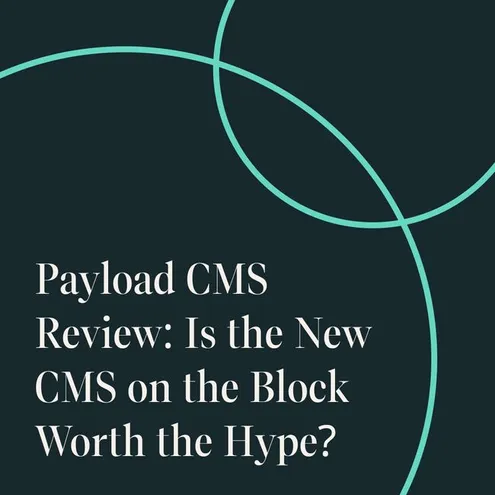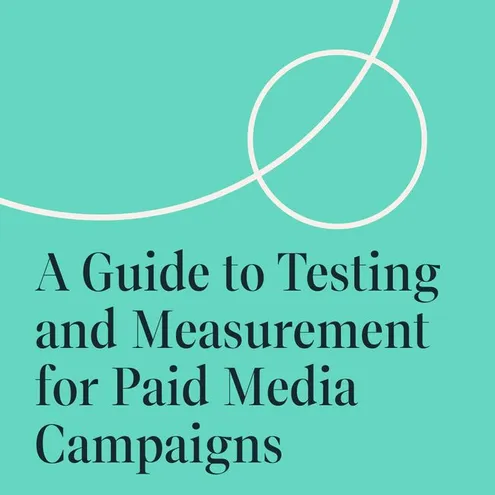19/05/22
Strategy
Every successful marketing strategy begins and ends with the customer. The importance of not just knowing but connecting with your target audience should not be overlooked. Ultimately, without your audience, you have no brand. Marketing exists for the customer, and your business exists to provide a service to that customer. Hotels are built for people - a hotel with no guests is a hotel that could not function. Defining your target market will not only give your hotel’s marketing strategy a clear direction, but it will give you the means to attract the right people using the techniques that you know will work most effectively for them.
There are a plethora of hotels across the globe, and it’s often relatively easy to take a wild guess at who their target market may be. For example, a hostel in Australia will market its services to young solo travellers, and a swanky hotel in a business district will aim to attract those visiting for meetings or conferences. It all comes down to a variety of elements such as:
- Location
- Price
- Style and interior
- Services you offer
These factors can all heavily influence your chosen demographic - that’s not to say that having a target audience will mean that others do not stay with you - but it has many benefits in the long run.
The benefits of choosing a target audience
Narrowing down your target market gives you a better view of who will benefit from your business the most, those that will enjoy staying with you more than others, per se. Not only does defining an audience give your hotel a better chance of creating the best campaigns, thereby improving your ROI and the number of direct bookings, but it ensures that you can focus your efforts on marketing toward a specific group of consumers that you know will engage with your brand.
Due to the sheer size of many hotels and the room for a large number of guests, it makes sense to have more than one market segment - it’s generally thought that the bigger the business, the more segments they can market. If you’re a newly opened hotel, it’s best to play it safe and stick to around 3 so that you can analyse how successful your research into your market was.
How do you define your target audience?
A general rule of thumb when it comes to defining your target audience in marketing is to create a customer persona (often referred to as a buyer persona). A customer persona is a detailed profile of someone representing your target market. It’s formulated from extensive research into the background, characteristics, likes and dislikes of your ideal customer. Whilst the persona is fictitious, it’s created to serve as a representation of your desired guest so that you can make the best-informed decisions on how to market your hotel effectively.
What steps can you take to define your customer persona? The first step should be to conduct your research, and this doesn’t mean a quick Google search. You’ll want to sit down and perform a comprehensive analysis of who your target guest might be and all the details that follow.
If you’re a hotel that isn’t quite new to the industry, take a look into software such as Google Analytics to retrieve important data on who is already visiting your site, including stats such as their location and gender. You should also read through any guest reviews that previous visitors have made to give you a good indication of who tends to stay with you, as well as who is interacting with your social media channels the most. You can even survey your guests as they visit or leave your hotel so that they can provide valuable insight into themselves (even better if they are a repeat guests).
Make a list of the key factors that go into your ideal guest, including:
- Age range
- Location
- Gender
- Income or spending habits
- Employment status
- Personality
- Values
- Interests
- Dislikes or challenges relevant to your business
It’s also a good idea to investigate the competition and find out who your rivals are targeting. You can do this through software such as SEMrush and Buzzsumo, which will give you insights into competitor analysis so that you can identify opportunities that you may have missed.
Identify the challenges that your customer faces
Taking the detailed list of information you have gathered about your chosen persona, you’ll create an ideal customer (guest) based on all of the data combined. For example, you may create the persona of a 43-year old female from London who loves walking her dog and hiking. Another persona might portray a 28-year old male graduate who is keen to travel and loves the gym.
Every guest has a journey, which we marketers refer to as the customer journey (or buyer's journey). When you take a look at your customer persona, you’re going to think about what challenges they face, or what their goals might be. More so, what is stopping them from reaching their goals or achieving success?
Using guest reviews will be effective in answering these questions, as you’ll be able to identify what problems guests have had or how you may have helped. You will also be able to discover the reasons why they stayed at your hotel, i.e. the need for a relaxing trip away or some fun with the family.
The next step would be to pinpoint what you can do to tackle the challenges that they face. Now, what can you do to truly help them, how can you service them effectively so that they may achieve their goals? This involves analysing precisely how and why your hotel will benefit the customer persona.
There you have it - your target audience
Using all of the data you have collected, you can now paint a picture of your ideal guest. As we mentioned, you are more than welcome to create multiple personas as you will likely want to market to more than one type of guest. Now that you have this information, you can use it to target your advertisements, content and campaigns to an audience that you know matters. Research shows that over 40% of consumers would rather invest in a product or service after seeing an ad that is targeted to their interests.
As you can see, the benefits of defining your target audience are huge, and it’s the first step in every marketing strategy. If your hotel hasn’t yet made a decision on who they are targeting, it’s a good idea to start now. Feel like you need some help in performing your research and making an informed decision? Contact our team of marketing experts and we’ll be happy to help.









